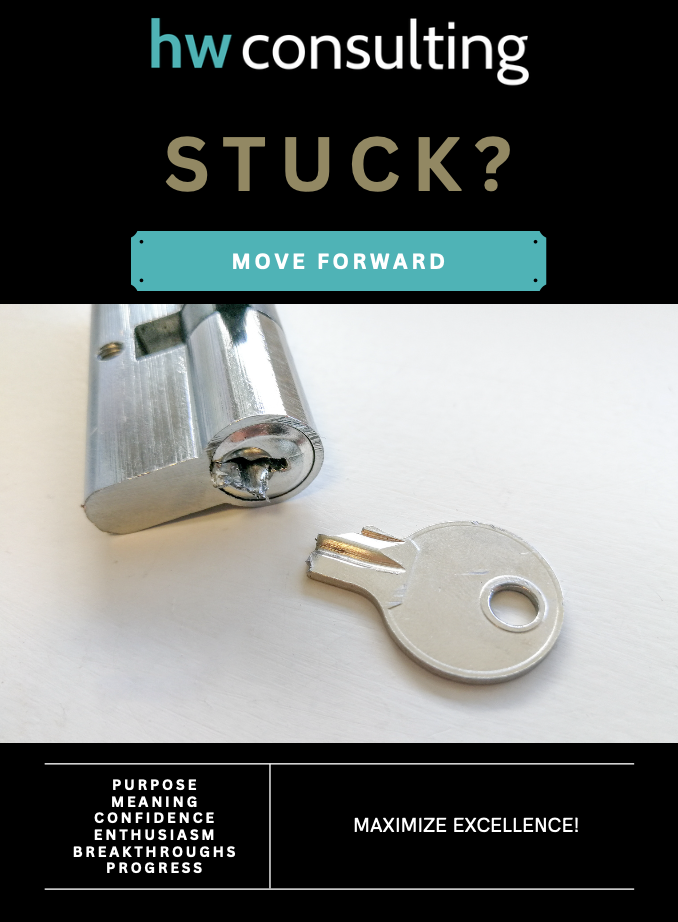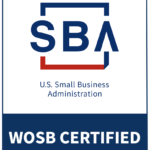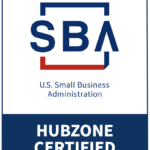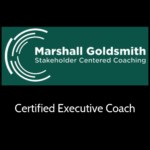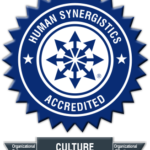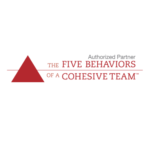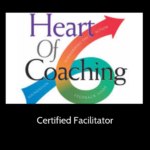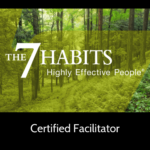Feeling stuck often arises from restrictive conditions and a lack of clear next steps. It manifests as sensing untapped potential, facing invisible barriers, and being unable to progress despite a strong desire to do so.
While it may seem that external circumstances or the actions of others are to blame, it’s also crucial to recognize how you might be contributing to your own stagnation. Your responses shape your circumstances, and your behaviors influence how others respond to you.
Identifying these behaviors is essential. To let go of habits that no longer serve you, you must first recognize them. Bringing these habits to conscious awareness allows you to experiment with new responses and behaviors to see if they yield different results.
This process can feel awkward and even risky, making you feel vulnerable, foolish, and exposed. However, it is effective. When successful, it unleashes energy and confidence, making it easier to continue the effort.
How do you know if you’re stuck?
- You feel something is preventing you from moving forward or from leading the life you’re supposed to be living.
- You feel unable to break through circumstances that are conspiring to hold you down.
- You feel as if your contributions are not recognized or appreciated.
- You feel the people around you have no idea what you are capable of achieving.
- You have a nagging sense that you’re meant for something more but can’t quite define what that “something” is.
- You find yourself daydreaming about alternate life paths or careers, wondering “what if?”
- You feel frustrated that your skills and talents aren’t being fully utilized in your current role.
- You’ve lost enthusiasm for goals that once excited you but haven’t found new ones to replace them.
- You compare yourself to peers who seem to be progressing faster in their careers or personal lives.
- You feel stuck in old patterns or habits that no longer serve you, but struggle to break free from them.
- You worry that time is passing you by and that opportunities are slipping away.
- You long for a greater sense of purpose or meaning in your daily life and work.
- You feel that external factors (economy, job market, family obligations) are limiting your options.
- You struggle with imposter syndrome, doubting your abilities despite past successes.
Strategies for Getting Unstuck
- Feeling Something is Preventing You from Moving Forward
- Reflect on what specific barriers are holding you back and brainstorm ways to overcome them.
- Define what you want to achieve and create a step-by-step plan to get there.
- Talk to a coach, mentor, or trusted friend for guidance and encouragement.
- Feeling Unable to Break Through Circumstances
- Try to view your circumstances from a different angle to find new solutions.
- Break down your goals into smaller, manageable tasks to gradually overcome obstacles.
- Focus on developing a resilient mindset to better handle challenges.
- Feeling Unrecognized or Unappreciated
- Keep a record of your accomplishments and share them during reviews or meetings.
- Regularly highlight your contributions to your team and supervisors.
- Ask for constructive feedback to understand how you can improve and be more recognized.
- Feeling People Don’t Know Your Capabilities
- Take on projects that allow you to demonstrate your abilities.
- Build relationships with colleagues and industry professionals to increase your visibility.
- Share your successes and skills with others.
- Nagging Sense of Being Meant for Something More
- Take time to explore different interests and passions to find what excites you.
- Define new, meaningful goals that align with your sense of purpose.
- Read books, attend seminars, or talk to people who inspire you.
- Daydreaming About Alternate Life Paths
- Look into different career paths or life choices that interest you.
- Try out new hobbies or side projects to see if they resonate with you.
- If you find a path that excites you, create a plan to transition towards it.
- Feeling Frustrated with Underutilized Skills
- Discuss with your manager how your skills can be better utilized in your current role.
- Look for projects or roles that align with your skills and interests.
- Engage in activities outside of work that allow you to use and develop your skills.
- Lost Enthusiasm for Goals
- Reflect on why your goals no longer excite you and consider setting new ones.
- Seek out new challenges that reignite your passion and motivation.
- Recognize and celebrate small achievements to maintain momentum.
- Comparing Yourself to Peers
- Remember that everyone’s path is different and focus on your own progress.
- Define what success means to you and work towards those goals.
- Shift your focus from comparison to appreciation by reflecting on what you’re grateful for.
- Stuck in Old Patterns or Habits
- Recognize what triggers your old habits and find ways to avoid or manage them.
- Establish new, positive routines that support your goals.
- Share your goals with someone who can help keep you accountable.
- Worrying About Time Passing By
-
- Focus on what’s most important to you and allocate time accordingly.
- Start taking small steps towards your goals to make the most of your time.
- Regularly review your progress and adjust your plans as needed.
-
- Longing for Greater Purpose or Meaning
-
-
-
-
- Reflect on what’s most important to you and align your actions with those values.
- Look for opportunities that align with your sense of purpose.
- Engage in volunteer work or community service to find fulfillment outside of your job.
-
-
-
-
- Feeling Limited by External Factors
- Identify aspects of your situation that you can influence and take action on them.
- Find creative ways to work around external limitations.
- Reach out to networks or resources that can help you navigate external challenges.
- Struggling with Imposter Syndrome
- Keep a record of your successes and remind yourself of them regularly.
- Ask for feedback to gain a realistic perspective on your abilities.
- Be kind to yourself and recognize that everyone has doubts and insecurities.
You Don’t Have to do it Alone – Harris Whitesell Consulting can help!
Implementing these strategies can help you overcome feelings of being stuck and move forward with confidence and clarity. Be aware – to implement these strategies, you must change your habits! Habits are hard to change alone, and you will be most successful if you enlist help from an accredited leadership or peer coach, or an accountability partner.
Let’s Talk!
(910) 409-0202 | info@harriswhitesellconsulting.com | www.harriswhitesellconsulting.com

